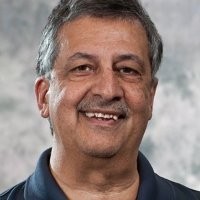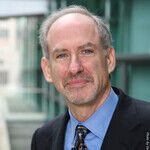Coca-Cola, which is on a boycott list of products associated with settlements in the Israeli occupied West Bank, has created a clever little campaign to promote its brand.
I am not sure if it will backfire like everything else connected to the Middle East and the endless conflict caused by growing extremism.
Coca-Cola calls it the "Share a Coke" campaign (also called "Share a Name"). Basically, they selected 250 common first names and printed them randomly on the labels of their soft drink products including Coke and Diet Coke, cans and plastic bottles.
It's immediately interesting for several reasons that have to do with the contentious Middle East conflict that religious fanatics on both sides continue to provoke to greater extremes.
You can go online and see the list — and which names are on it and which names are not.
For a pro-Israeli product, at first glace, it doesn't have many "Israeli" names. Though, there are Israeli names associated with Israel's forced occupation of the Biblical land Palestine and Jewish names that are associated with the Biblical history.
There are many Arab or Muslim names, too, but the one that is considered the most used name in the world, Mohammed, is not on the list.
I'm not sure why but I suspect it has to do with the historic fact that many Muslims get very angry if you place the name of their religious prophet on a commercialized campaign. They were angry in 1977 when Arab film producer Moustapha Akkad put the name on his movie, "Mohammed, The Messenger of God."
The film, starring Anthony Quinn, caused a huge controversy even back then and the name was changed to simply "The Message." More dramatic, though, was the editing which removed any visualization of the "face" of Mohammed, so when the actor playing Mohammed spoke during the film which detailed the account of the founding of Islam in the 7th century, you didn't see his face. You only heard his voice and saw what he would be seeing.
It made for an odd film that didn't do very well at the box offices, although I was invited to the packed premiere in Chicago when it was screened by the Saudi government.
Muslims who wouldn't feel slighted because Mohammed's name is not on the list shouldn't feel too bad. Jesus' name isn't on the list either. And neither is Adonai, the Hebrew word for God.
But there are many Arab and Jewish names on the list, such as Aaron, a strong Hebrew name, but not Moses. But Jacob is on the list and so is David, who is the second "King" of ancient Israel, is on the list. Saul, the first "King," isn't on the list.
Arab names include Ali, Amir, Hannah, Hassan, Jamal, Noor and Omar. Ibrahim is also on the list, which is the Arabic version of Abraham, the father of Judaism.
My non-Arab name, Ray, is on the list, although so many people think I am Muslim because I champion the rights of Palestinians that it might as well be a Muslim name.
My mom, who could only speak Arabic, picked the name when I was born in an American hospital on the South Side of Chicago after hearing the intercom blare out repeatedly, "Calling Dr. Raymond. Dr. Raymond. Dr. Raymond."
You know how Arab moms are. They want their kids to either be doctors or grocery store owners.
There are Hispanic names on the list and African-American names, too. And there are Irish names and some Italian names, too.
Yet, it didn't catch my attention until I was at the store, stuck my hand in the deli fridge, and pulled out a Diet Coke with the name "Jordan" on it, and I wondered if they had thought about including the names of countries on the bottles like Saudi Arabia, Egypt, Syria, Lebanon and Palestine.
And then my eyes scanned downward to the bottom of the label. Coca-Cola created a special Hashtagged keyword to help people aggregate and find references to the "Share the Name" campaign.
It's #ShareaCoke.
Of course, when I pronounced it out loud, it came out as "Sharia" as in Sharia Law, the phrase that has lit the fuse of extremist American Christians.
These "Christian" activists have launched campaigns to block "Sharia Law" from being applied in any American city. One of their targets is Detroit where protestors have disrupted the large Arab and Muslim community and even forced the closure of the annual ArabFest, one of the best hosted in the Western Hemisphere.
It reminded me of the time Starbucks considered creating a drink called the "Teazy." But in Arabic, Teazy means "my ass" — I'd say derriere but it might not convey the concern that it immediately evoked.
I still drink Diet Coke, despite the boycott against Israel. As someone who endorses the two-state solution to end the Israel-Palestine conflict, I support only a boycott against any product associated or produced in the West Bank and in East Jerusalem.
If I could ask one question of the gods on Coca-Coal's Mt. Olympus where this campaign was conceived — it's a multibillion-dollar corporation — it would be this: "What is the name of the person who came up with this idea? And, is his name on the list?"
Well, that's two questions I probably won't get answered.
Ray Hanania is an award-winning Palestinian American columnist managing editor of The Arab Daily News at www.TheArabDailyNews.com. Follow him on Twitter @RayHanania. To find out more about Ray Hanania and read features by other Creators Syndicate writers and cartoonists, visit www.creators.com.






View Comments